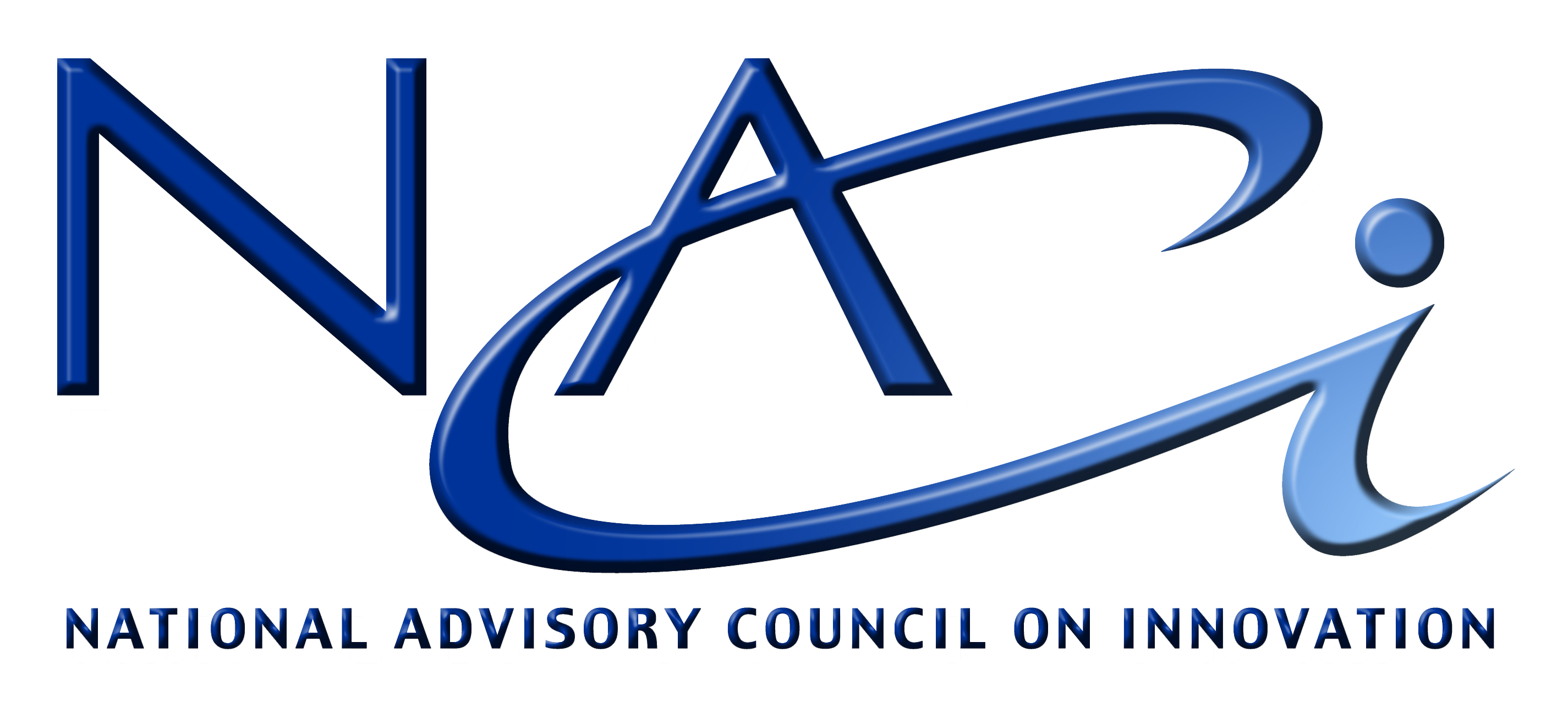Chairperson’s Overview, Prof. Cheryl de la Rey
On behalf of the National Advisory Council on Innovation (NACI) I am delighted to present the 2015/16 Annual Report. NACI remains an important actor in the National System of Innovation (NSI). It assesses the state and contribution of the NSI towards sustainable and inclusive socio-economic development. The assessment involves systematic monitoring, evaluation and analysis of the NSI activities, capabilities, and its impact on society and the economy. The ultimate goal is to enable science, technology and innovation (STI) policy learning necessary to bolster performance.
The NSI is relatively performing better in certain areas when compared to some countries. For instance, South Africa’s technology payments as percentage of GDP in 2014 was 0.5%, a high value in comparison to the Brazil Russia India China (BRIC) group of countries (0.2% in average) but lower than that of South Korea (0.7%). Also, South Africa’s scientific output as measured by the number of publications in internationally accredited journals increased at an average rate of 11% per year over the 2005-2014 period, representing an average growth of around 808 publications per year. This growth is much higher than the world average, resulting in a steady increase in South Africa’s share of the world’s journal publications (from 0,49% in 2003 to 0,81% in 2014).
Notwithstanding, the NSI experiences some challenges such as: the level of R&D expenditure as percentage of GDP is still very low (0.73% in 2013) compared to China (2.01%), Russia (1.13%), Brazil (1.15% in 2012) and South Korea (4.15%) and Business Expenditure on Research and Development (BERD) as percentage of general expenditure on R&D (GERD) declined to 46%, from 60% in 2008/09. A high proportion of business R&D expenditure in 2013/14 was seen in the services (47%) and manufacturing (32%) sectors. About 37% of R&D expenditure funded from abroad goes to BERD and government’s funding of BERD (6%) is very low as compared to the 2008/09 level of 27%.
NACI is mandated to provide a systemic view of what is being done (including its efficacy), what needs to be done, and recommend steps to be undertaken to improve science technology and innovation (STI) policy performance. NACI’s work also includes providing advice on how to confront both immediate or pressing and long-term concerns using STI. To this extent, some examples are highlighted in the Annual Report:
NACI continued to perform its dual advisory function, which is to generate advice proactively or in response to the Minister’s request. The Minister’s requested advice include the review of progress since the 1996 White Paper on Science and Technology, the crafting of a new White Paper and Decadal Plan for STI, the establishment of National Innovation Data and Information Portal and analysis of the Research and Development Survey Results.
Proactively, NACI identified and provided advice to the Minister on (a) water and sanitation, energy, food security nexus; (b) gender mainstreaming and race inclusion, skills sustainability; (c) the role of indigenous technologies; (d) sustainable use of biomass; and (e) produce an indicators booklet on South African Science, Technology and Innovation.
I sincerely hope that NSI stakeholders (including policy makers, the private sector and non-government organisations), and the public will find this 2015/16 Annual Report.
I take this opportunity to express my sincere gratitude to all the members of the NACI Council, as well as NACI experts who participated in our working group committees for their invaluable contribution to the work of NACI during the year.
My special appreciation to the Minister of Science and Technology, the Honourable Naledi Pandor, who demonstrated consistent support for NACI activities.
On behalf of the Council, I wish to extend our gratitude to the, Acting CEO of NACI and the NACI Secretariat as a whole, for ensuring the completion of the year’s work programme.
Prof. C. de la Rey
Chairperson: NACI







